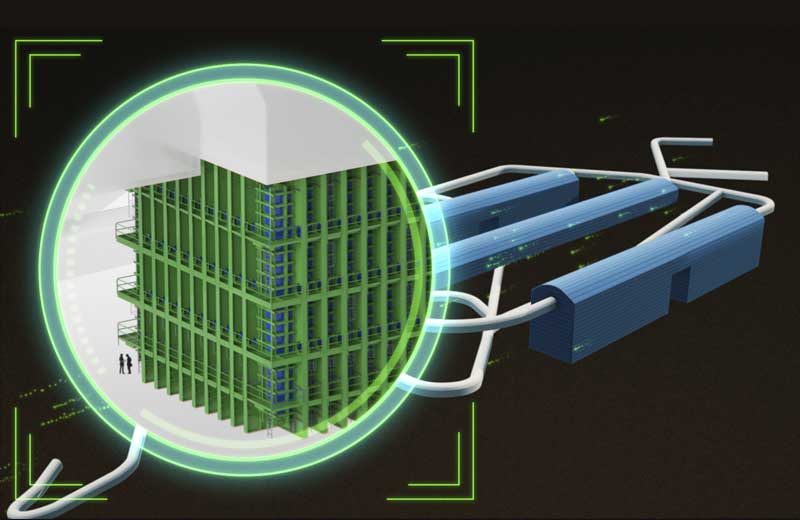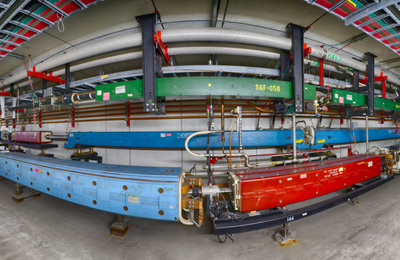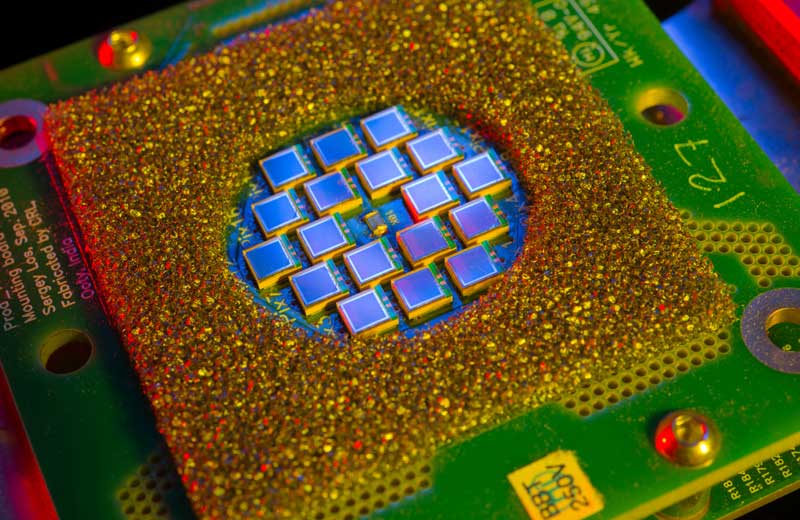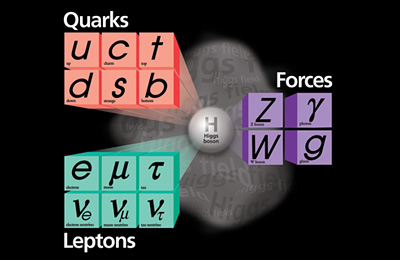Fermi National Accelerator Laboratory is America's particle physics laboratory.
We advance particle physics research using a range of techniques, asking different questions and using different tools. All ultimately aim at the same scientific goal: a complete understanding of the laws of nature and the cosmos.
Our focused scientific mission, coupled with our accelerator and detector facilities and R&D infrastructure, keep the United States a world leader in particle physics research. Our program provides opportunities for international partners to participate in particle physics facilities in the United States.
DUNE at LBNF
The international DUNE at LBNF, hosted by Fermilab, is an international flagship experiment to unlock the mysteries of neutrinos. DUNE will use Fermilab's powerful particle accelerators to send the world's most intense beam of high-energy neutrinos to DUNE's massive neutrino detectors, which will explore neutrinos' interactions with matter.
This ambitious project requires giant particle detectors, an intense beam of neutrinos and international infrastructure to bring it all together.
Particle Physics
Fermi National Accelerator Laboratory is a Department of Energy national laboratory dedicated to particle physics research. Fermilab supports work by scientists, from across the country and the globe, who seek to further our understanding of matter, energy, space and time.
At Fermilab, a robust scientific program pursues answers to key questions about the laws of nature and the cosmos.
Particle
Accelerators
More powerful than any microscope, a particle accelerator allows scientists to study the smallest things human beings have ever observed. At the same time, high-energy accelerators can recreate the conditions of the early universe – though in a much smaller volume.
The PIP-II project is an essential upgrade of Fermilab's particle accelerator complex. It will provide a flexible platform for the long-term future of the laboratory and the U.S. accelerator-based particle physics program. About 2,300 physicists from all over the world come to Fermilab to conduct experiments using particle accelerators.
Detectors, Computing
and Quantum Science
Fermilab scientists and engineers build detectors, sensors and other instruments that behave like microscopes for the subatomic world, allowing us to glimpse nature's smallest constituents.
Hundreds of scientists collaborate with Fermilab to collect, analyze and distribute particle physics data in advancing our understanding of the fundamental nature of the universe.
Particle Physics 101
What are the smallest bits of matter that make up everything around us? What have physicists discovered about the forces bind them together? What do we know about the relationships between matter, energy, space and time? And how do we continue to uncover those little pieces of the universe?
Learn all about how the tiniest constituents of our giant universe in Particle Physics 101.
- Last modified
- 05/25/21
- email Fermilab












